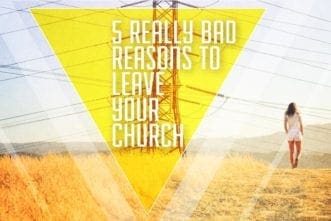FrankViolaBlog - Why You Should Read More Books & How You Can Do So Quickly |
Posted: 20 Aug 2015 05:24 AM PDT
Most
of you are influencers of some sort. Many are pastors, teachers,
authors, bloggers, professors, and people who are involved in some
kind of ministry. (So says this year’s blog survey,)
Recently, I caught up with Dave
Frederick – a Vineyard pastor and President of Leaders Book Summaries –
to ask him about why it’s critical for those who have influence to read
many books. Here’s the interview along with a free perk at the end for
my subscribers.
Why is it important for those who influence others to read many books?
Dave Frederick:
If you want to influence or lead other people, you have to keep
learning and growing. You can’t really lead people beyond where you are
yourself. Reading allows you to benefit from other’s experiences and
grow in wisdom without having to recreate the wheel every time. And it’s
a great way to gain information that you need to help yourself, and
others, move forward. None of us knows all we need to; the most
effective leaders keep investing in their own growth so they have more
to pass on.
What would you say to a leader who says, “I don’t read any books except the Bible?”
Dave Frederick:
I would say, “That sounds very spiritual! But I don’t think it is
either biblical or wise.” Paul didn’t live that way. He asked Timothy to
bring “the scrolls, especially the parchments” (II Timothy 4:13) which
would have been reading material, and he was familiar with writers of
different cultures—he quoted them at times when he preached. Also,
Proverbs is clear that we should pursue wisdom, and reading is one of
the best ways to do that. As far as I can see, the most effective,
impactful spiritual leaders throughout history have all been readers.
You would be hard-pressed to find any that didn’t read the Bible and other material as well.
How does Leaders Book Summaries help busy people to read more books?
Dave Frederick:
It’s really just simple math. A typical person will take 4-6 hours to
read a full book. They will take 15-20 minutes to read a summary, and
they will still get all the key information. Interestingly, a
Carnegie-Mellon study found that people who read good summaries often
retain more of what they read than those who read the whole book. I
don’t think the goal is just to read more—although summaries enable you
to do that—but rather to learn more. And reading summaries helps you do
that as well.
What if a person says, “I want to read more books, but I’m not a leader.” What is your response?
Dave Frederick:
So what? Reading, learning, growing—those things are for everyone. If
you want to become a leader, reading is a great way to invest in
yourself, but even if you don’t, hopefully you still want to become all
you can be—and the wisdom you can gain from reading will serve you well.
What are some of the most popular books you’ve featured in summary form?
Dave Frederick:
That’s a hard one! We summarize all the current top leadership books,
and try to make sure that we get all the older classics as well. It’s
probably easier to talk about popular authors: John Maxwell, Andy
Stanley, Henry Cloud, Patrick Lencioni, Larry Osborne, the Heath
brothers, Kouzes & Posner, Bill Hybels, and so many more—if they are
writing good material, we try to summarize it. We want to get the best
material out there into people’s hands. If you go to the website, you
can actually see all the books we have summarized.
What has the response been to Leaders Book Summaries?
Dave Frederick:
Overwhelming! We have had thousands of people sign up. Many churches
have gotten subscriptions for all of their leaders. The truth is, no one
is out there wondering what to do with all of their extra time! So
having a way to invest in yourself and grow, without having to spend
hours and hours, really addresses a felt need.
How can people join to check it out and is there a cost?
Dave Frederick: You can go to the website (studyleadership.com)
and sign up. We have month-to-month and annual subscriptions—all the
costs are outlined there. Or, you can just click this link—we are
offering your readers a free first month so they can check out the service with no risk. You can’t get that through the normal website, you have to use the link.
Is there anything else that you do besides the summaries?
Dave Frederick: Yes!
This year we have added a new service we call LeadersTips. These are
short, 2-3 minute videos that cover one specific tip for leaders—one
specific idea or insight that will help you become a better leader. We
do one per week, and they are free to our subscribers. It’s just another
way to serve people.
Any final comments?
Dave Frederick: Our goal is simple: we want to help people become who they are called to be and do what they are called to do. That’s what we
are called to do. Both the summaries and the videos serve that purpose.
As God’s leaders step into their identity and develop their skills, I
think the church, and the world, will be affected. It’s exciting to me
that we get to play a small part in helping that happen.
Check out studyleadership.com




 Rick has one passion… To
see “a biblical small group within walking distance of every person on
the planet making disciples that make disciples.” He is presently
pursuing this passion as the Small Group and Discipleship Specialist at
LifeWay Church Resources. Rick has authored or co-authored multiple
books, studies, and leader training resources including A Different Kind
of Tribe: Embracing the New Small Group Dynamic, Destination Community:
Small Group Ministry Manual, The Gospel and the Truth: Living the
Message of Jesus, Small Group Life Ministry Manual: A New Approach to
Small Groups, Redeeming the Tears: a Journey Through Grief and Loss,
Small Group Life: Kingdom, Small Group Kickoff Retreat: Experiential
Training for Small Group Leaders, and Great Beginnings: Your First Small
Group Study, Disciples Path: A Practical Guide to Disciple Making.
Rick’s varied ministry experiences as an collegiate minister, small
group pastor, teaching pastor, elder, full-time trainer and church
consultant, as well as having been a successful church planter gives him
a perspective of church life that is all-encompassing and
multi-dimensional. Rick is a highly sought after communicator and
trainer.
Rick has one passion… To
see “a biblical small group within walking distance of every person on
the planet making disciples that make disciples.” He is presently
pursuing this passion as the Small Group and Discipleship Specialist at
LifeWay Church Resources. Rick has authored or co-authored multiple
books, studies, and leader training resources including A Different Kind
of Tribe: Embracing the New Small Group Dynamic, Destination Community:
Small Group Ministry Manual, The Gospel and the Truth: Living the
Message of Jesus, Small Group Life Ministry Manual: A New Approach to
Small Groups, Redeeming the Tears: a Journey Through Grief and Loss,
Small Group Life: Kingdom, Small Group Kickoff Retreat: Experiential
Training for Small Group Leaders, and Great Beginnings: Your First Small
Group Study, Disciples Path: A Practical Guide to Disciple Making.
Rick’s varied ministry experiences as an collegiate minister, small
group pastor, teaching pastor, elder, full-time trainer and church
consultant, as well as having been a successful church planter gives him
a perspective of church life that is all-encompassing and
multi-dimensional. Rick is a highly sought after communicator and
trainer. 
 Ben Reed is the small
groups pastor at Long Hollow, a multi-site church in the Nashville, TN,
area. He holds an Mdiv from Southern Baptist Theological Seminary. Ben
is also an avid coffee drinker and CrossFitter, but not at the same
time. Catch up with Ben at BenReed.net.
In his book, "Starting Small: The Ultimate Small Group Blueprint," he
helps leaders through the process of putting a small group ministry
together and creating a place where people belong so they can become.
Ben Reed is the small
groups pastor at Long Hollow, a multi-site church in the Nashville, TN,
area. He holds an Mdiv from Southern Baptist Theological Seminary. Ben
is also an avid coffee drinker and CrossFitter, but not at the same
time. Catch up with Ben at BenReed.net.
In his book, "Starting Small: The Ultimate Small Group Blueprint," he
helps leaders through the process of putting a small group ministry
together and creating a place where people belong so they can become.


